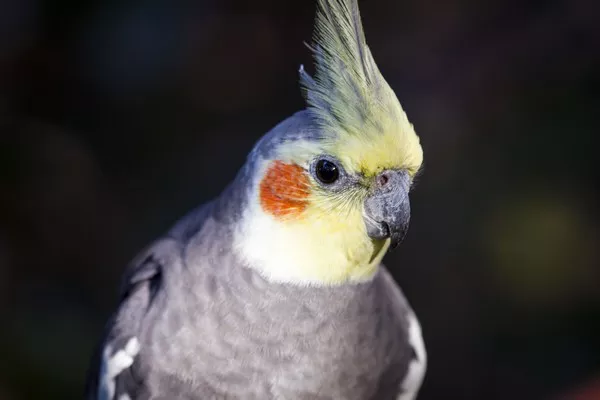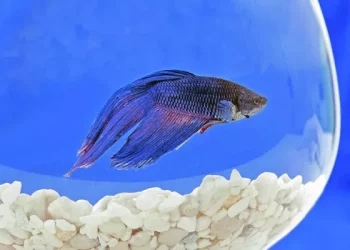Flemish Giant rabbits are known for their impressive size, gentle nature, and unique personality. As one of the largest domestic rabbit breeds, these rabbits require special care, especially when it comes to their diet. Pet owners often wonder about the best foods to feed their rabbits and whether certain vegetables are safe. One commonly asked question is whether Flemish Giant rabbits can eat broccoli. In this article, we will explore the dietary needs of Flemish Giant rabbits, the role of broccoli in their nutrition, and the benefits and risks associated with feeding them this vegetable.
Understanding the Flemish Giant Rabbit
Before diving into the specifics of their diet, it’s important to understand the Flemish Giant rabbit as a breed. Flemish Giants are one of the oldest and largest rabbit breeds in the world, with some individuals weighing as much as 14 to 15 pounds or more. Their size makes them distinct among other rabbit breeds, and they are often known for their docile and friendly nature. These rabbits are not only popular as pets but are also used in meat and fur production due to their large size.
Flemish Giants require ample space to roam and a diet that supports their large stature. Like all rabbits, they are herbivores, meaning they rely on a plant-based diet. The foundation of their diet should be hay, with fresh vegetables and occasional fruits serving as supplementary food.
The Importance of a Balanced Diet for Flemish Giant Rabbits
A balanced diet is essential for the health and well-being of Flemish Giant rabbits. These rabbits have unique nutritional needs because of their large size and active nature. A proper diet supports their digestive health, keeps their teeth in check, and promotes overall vitality. The key components of a healthy rabbit diet include:
Hay: Hay should be the primary food source for all rabbits, including Flemish Giants. It provides essential fiber that supports healthy digestion and helps to prevent obesity, a common issue in larger rabbit breeds. The most suitable hay for rabbits includes timothy hay, meadow hay, and oat hay.
Fresh Vegetables: Fresh leafy greens and vegetables provide essential vitamins and minerals that hay alone cannot supply. A variety of vegetables is needed to offer a wide range of nutrients.
Pellets: High-quality rabbit pellets can be included in the diet but should not make up more than 10-15% of the total food intake. Pellets are a concentrated source of nutrients and should not replace hay or fresh vegetables.
Fruits: Fruits can be given as occasional treats, as they are high in sugar. Rabbits can enjoy small portions of fruits like apples, strawberries, or bananas, but these should be limited to avoid digestive problems.
Given the importance of vegetables in a rabbit’s diet, many rabbit owners turn to leafy greens and other vegetables to provide variety. Among the most commonly offered vegetables is broccoli. But is it safe for Flemish Giant rabbits? Let’s take a closer look.
Can Flemish Giant Rabbits Eat Broccoli?
The short answer is yes, Flemish Giant rabbits can eat broccoli in moderation. However, while broccoli is generally safe for rabbits, there are some important considerations when offering it as part of their diet.
Nutritional Benefits of Broccoli for Rabbits
Broccoli is a highly nutritious vegetable that contains a variety of vitamins and minerals beneficial to rabbits. Some of the nutrients found in broccoli include:
Vitamin C: Rabbits, like humans, cannot produce their own Vitamin C, so they must obtain it through their diet. While rabbits are not as reliant on Vitamin C as humans, they still require some to maintain a healthy immune system. Broccoli contains a fair amount of Vitamin C, which can help boost the rabbit’s immunity.
Vitamin K: This vitamin plays an important role in blood clotting and bone health. It is found in broccoli and can contribute to maintaining a rabbit’s overall health.
Fiber: Like most vegetables, broccoli provides fiber, which is crucial for digestive health. Fiber helps to regulate bowel movements and prevent gastrointestinal problems, such as diarrhea or bloating.
Minerals: Broccoli contains various minerals such as calcium, potassium, and magnesium. These minerals are important for maintaining proper bodily functions and supporting muscle and bone health.
The Risks of Feeding Broccoli to Flemish Giant Rabbits
While broccoli is a nutritious vegetable, there are some potential risks associated with feeding it to Flemish Giant rabbits. Understanding these risks will help you make an informed decision about whether to include broccoli in your rabbit’s diet.
Gastrointestinal Distress: Rabbits have sensitive digestive systems, and some vegetables, including broccoli, can cause bloating, gas, or diarrhea if fed in large quantities. Excessive amounts of broccoli can disrupt the balance of bacteria in the rabbit’s gut, leading to digestive upset. It’s important to introduce broccoli gradually and monitor your rabbit for any signs of gastrointestinal issues.
High in Calcium: Broccoli contains a moderate amount of calcium, which is beneficial in moderation but can be problematic if fed too frequently or in large amounts. Rabbits need calcium for bone health, but excessive calcium intake can lead to urinary issues, such as bladder stones. Flemish Giant rabbits, due to their large size, may be more prone to developing these problems if their calcium intake is not carefully monitored.
Cruciferous Vegetables and Gas: Broccoli belongs to the cruciferous vegetable family, which also includes cabbage, kale, and cauliflower. While these vegetables are rich in nutrients, they can also cause gas and bloating in some rabbits due to the presence of compounds like raffinose and sulfur. Rabbits that are sensitive to these compounds may experience discomfort after eating broccoli.
Oxalates: Like many leafy greens, broccoli contains oxalates, which are compounds that can interfere with calcium absorption and contribute to the formation of kidney or bladder stones in rabbits. While the oxalate content in broccoli is relatively low compared to other vegetables, it is still important to feed it in moderation to avoid any potential health risks.
How Much Broccoli Can Flemish Giant Rabbits Eat?
Broccoli should be fed to Flemish Giant rabbits as an occasional treat, rather than a staple of their diet. It is best to offer small amounts of broccoli (about one to two florets per serving) a few times a week. This portion is enough to provide the nutritional benefits of the vegetable without overwhelming the rabbit’s digestive system.
To avoid any adverse effects, always introduce new foods slowly into your rabbit’s diet. Start with a small amount of broccoli and observe how your rabbit reacts. If there are no signs of digestive distress, you can continue to offer it occasionally. If your rabbit shows any signs of discomfort, such as diarrhea or bloating, it’s best to discontinue feeding broccoli and consult a veterinarian.
How to Serve Broccoli to Flemish Giant Rabbits
When serving broccoli to your Flemish Giant rabbit, it’s important to prepare the vegetable properly. Follow these tips for safe and healthy serving:
Wash Thoroughly: Always wash broccoli thoroughly to remove any pesticides, dirt, or chemicals that could be harmful to your rabbit.
Serve in Small Pieces: Cutting the broccoli into small, manageable pieces will make it easier for your rabbit to eat and prevent choking hazards.
Offer Raw, Not Cooked: Raw broccoli retains the most nutrients and is safer for rabbits to eat. Cooking vegetables can reduce their nutritional value and may also make them harder to digest.
Combine with Other Vegetables: While broccoli is a healthy addition to a rabbit’s diet, it should not be the only vegetable you offer. Variety is key to providing balanced nutrition. Combine broccoli with other leafy greens such as romaine lettuce, parsley, or dandelion greens to give your rabbit a variety of nutrients.
Signs of an Unhealthy Diet
It’s essential to monitor your Flemish Giant rabbit’s health and behavior to ensure that they are thriving on their diet. While broccoli is a nutritious vegetable, it’s important to recognize when your rabbit may be experiencing adverse effects from their food. Some signs that your rabbit’s diet may not be agreeing with them include:
Diarrhea or Soft Stool: If your rabbit experiences frequent diarrhea or very soft stool, it could be a sign that their diet is too rich or not balanced. Excessive vegetable consumption, including broccoli, can be a contributing factor.
Bloating or Gas: Bloating or a distended abdomen may indicate that your rabbit is experiencing gastrointestinal distress, possibly due to the consumption of too much broccoli or other gas-producing foods.
Lethargy: If your rabbit becomes unusually lethargic, it could be a sign of discomfort or digestive issues. This could also indicate that they are not getting the proper nutrients they need to maintain their energy levels.
Conclusion
In conclusion, Flemish Giant rabbits can eat broccoli in moderation, and it can be a healthy addition to their diet when served correctly. Broccoli offers several nutritional benefits, including Vitamin C, fiber, and other essential nutrients. However, it is important to be aware of the potential risks, such as gastrointestinal distress, high calcium levels, and gas-producing compounds. Always feed broccoli in small amounts and observe your rabbit’s reaction to new foods.
A well-balanced diet for a Flemish Giant rabbit should primarily consist of hay, supplemented with fresh vegetables like broccoli, leafy greens, and occasional fruits. By following these guidelines, you can ensure that your Flemish Giant rabbit remains happy, healthy, and well-nourished for years to come.


















